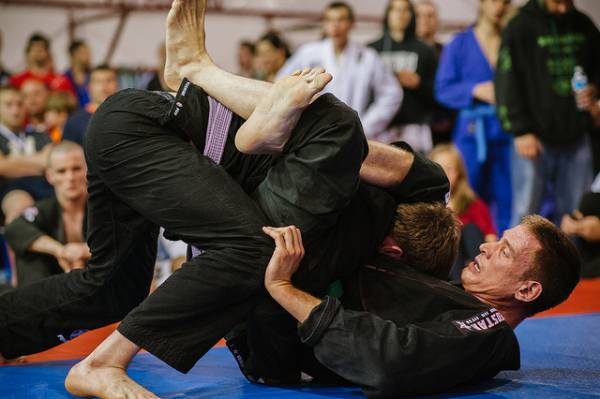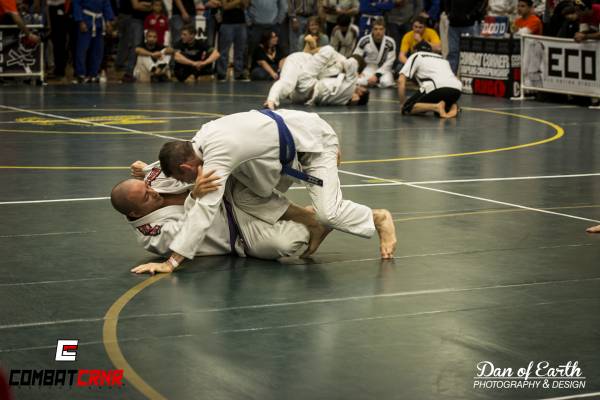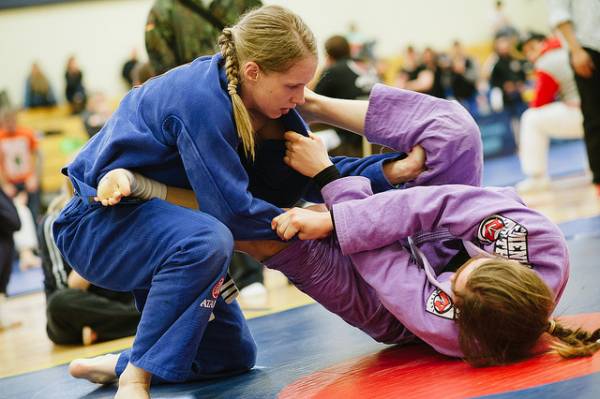Walk into any Brazilian jiu jitsu academy and you will find one consistent element: everyone who participates in BJJ loves it. It has nothing to do with BJJ. It has everything to do with passion.
I hear students all the time at New Breed Training Center tell me how much the training has impacted their life. When someone loves a sport with that amount of passion and is suddenly not able to do it due to injury, it can be devastating. When an injury happens many thoughts run through your head: thoughts of not being able to train ever again or worry of being behind when you finally do come back.
Injuries are common in BJJ, and they hurt both physically and mentally. It would be easy to say follow “XYZ” program and you will not get injured, but that is not the reality. Injuries happen. That being said, doing certain things daily will put the odds in your favor of not getting injured or being able to recovery quickly.
Hydration
Drinking water is one of the simplest and most effective things you can do to prevent injuries and improve performance. When you are run down during training from lack of water, your chance of injury goes up.
In weight class sports such as BJJ, fluid restriction is the most common method of weight reduction. But when the body is dehydrated, tissues become more susceptible to injury and performance drops. Most people associate dehydration with the feeling of thirst, but dehydration occurs well before you feel thirsty. According to a study published in the European Journal of Clinical Nutrition, most people don’t report the feeling of thirst until they are already 2% dehydrated.
For athletes who need to perform, hydration is key. According to same study, dehydration of 1-2% of body weight is enough to reduce exercise performance. The bottom line is it does not take much to become dehydrated. The first step to staying on the mats is to drink more water.

Sleep
When you are sleeping, your body is healing. During the day, your body gets broken down. A hard training session, a stressful day at work, and poor diet all break down the body. Sleep helps build it back up.
After a poor night’s sleep, the body is more insulin resistant. A study done by researchers at the University of Chicago showed that even partial sleep deprivation alters the circulating levels of hormones that regulate appetite. When the body is distressed from a lack of sleep, it seeks glucose to help fuel it. After you give the body the glucose, it quickly responds by spiking insulin to shuttle that glucose into the cells. Following the big insulin spike is a big crash and energy crashes. Try training after your insulin drops it is not fun.
For BJJ practitoners, sleep is going to help you recover from training and help maintain insulin sensitivity. Instead of instigating big insulin spikes to fuel your exhausted brain, save the sugar and spikes for after training when they help you recover.
Nutrition
Nutrition is a hot topic and for good reason – it’s important. You can find plenty of information out there, but none of it will do you any good if you don’t follow it. The best nutrition plan is one you can follow.
Some people feel better on a high-fat diet. Others need some carbs thrown in. To give your body the proper fuel it needs to repair after a training session, pick a nutrition plan that works for your schedule and stick to it. As a BJJ student, you are not the average person. You are training like an athlete and need to make sure your nutrition matches your training.

Strength Training
Strength training does more than build muscles – it helps prevent injuries. Brazilian jiu jitsu does a great job of making some parts of your body strong. But it also does a good job of making other sections of the body weaker.
Most of the BJJ practitioners who come to me for an assessment have weaknesses that result in pain and range-of-motion limitations. The solution to this is to make sure your strength and conditioning program is balanced. A solid program should include accessory work to bring up your weak areas. Overdevelopment in one area and underdevelopment in another leads to injuries. Spend the time to work on your weakest movements or body parts.
Mobility
Mobility work should be done daily. I find most people do not add mobility work to their routine due to a lack of time. But it does not have to take a lot of time. When doing mobility it’s about quality, not quantity.
To save time, make a priority list:
- Identify the one movement in which you feel the most restriction.
- Identify the joints involved in the movement.
- Do 10-15 minutes of mobility work in the morning and or night on that specific area.
- Reassess often to locate new areas of restriction.

An example would be if you feel tight when you squat. The major players in this movement are the hips, knees, and ankles. Therefore, you should focus your mobility work on these areas. If eventually your squat feels good, then you can determine a different area to work on in your daily mobility practice.
There may be additional issues at play that are beyond the scope of this article, but the bottom line is make your mobility work specific to your needs and do it regularly.
Conclusion
Keeping your body healthy enough to reduce your chance of injury does not have to be complicated. Drink plenty of water, get a good night’s sleep, focus your strength training on your weak areas, and do mobility work daily. In the end, it’s the little things you do that make the biggest impact.
References:
1. Maughan, R. (n.d.) Impact Of Mild Dehydration On Wellness And On Exercise Performance. European Journal of Clinical Nutrition, S19-S23.
2. UC Hospitals: Sleep loss boosts appetite, may encourage weight gain. (n.d.). Retrieved August 7, 2014.
Photos 1 and courtesy of Ana Nieves.
Photo 2 and 4 courtesy of David Brown Photography.
Photo 3 courtesy of Dan Halpin.






